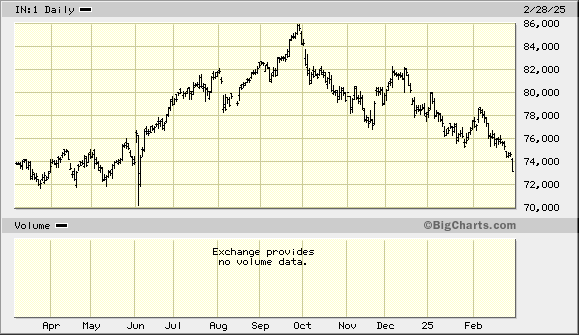
gfp
Member-
Posts
5,752 -
Joined
-
Last visited
-
Days Won
12
Content Type
Profiles
Forums
Events
Everything posted by gfp
-
that wasn't a state of the union speech. That was a standard trump rally
-
I avoid renting anything under section 8 (HUD) as a landlord because in my market you tend to have entire extended families moving into granny's apartment and they do strange stuff (like doing all their laundry in a huge clawfoot tub because they don't pay the water bill, etc.) But I guarantee you there are quite a few dead grannies who go completely unreported so that the 3 generations of people living in her HUD apartment don't have to move out. In the freezer or buried in the yard, I don't know.
-
That's what I wanted to see! A query that showed implausibly old people receiving actual disbursements! C'mon guys, print that report out
-
I could be wrong, but I feel like one of you is referring to "portfolio loans" as something that is secured by, underwritten or approved based on the value of an investment portfolio, while the other person is using the term "portfolio loan" as it is commonly used in finance - meaning the lender is going to retain the loan on their books - ie, not a conforming loan that shoots out the other end into the fannie / freddie machine.
-
It is a CBS Sunday Morning interview with Warren Buffett talking about Katherine Graham.
-
My name is Donald J Trump and I know what XRP SOL and ADA are. I swear
-
It is pretty unbelievable! I don't remember seeing "including XRP SOL and ADA" in any executive order! https://www.whitehouse.gov/presidential-actions/2025/01/strengthening-american-leadership-in-digital-financial-technology/
-
Thanks for putting this together (and sharing it with us!) - a very comprehensive case study on AGT!
-
General update on markets in India - it is unusual for charts to look this perfectly bad, but we could be getting closer to a bottom in the sensex. Fairfax india shareholders need to keep an eye on the currency - it could get worse than it has been.
-
Glad you are doing well! I was worried! I pictured a Stephanie Kelton book and a pile of Peyote and some kind of walk-about. But you are in tact and on message! Suerte!
-
Pretty large adjustment for 2 data points -> " the nowcast of the contribution of net exports to first-quarter real GDP growth fell from -0.41 percentage points to -3.70 percentage points while the nowcast of first-quarter real personal consumption expenditures growth fell from 2.3 percent to 1.3 percent."
-
Just ask @Parsad to change it for you in a private message. He's a busy guy but he will get to it
-
Don't take it personally - this is a value investment message board full of equity investors. It's an odd place to seek out blockchain / token valuation discussion. Expect some people to think you are full of it - comes with the territory.
-
https://www.fairfax.ca/press-releases/fairfax-announces-intention-to-redeem-cumulative-preferred-shares-series-e-f-m-02-28-2025/
-
I could be that Reysas made him a billionaire - or it could be that she didn't check the video title with him before publishing.
-
There is a lot of that in this business. Ask Doo Diligence, it's just like music. Just because you are well studied and talented in music doesn't mean you can improvise in real time when it's your turn to wing it up there on stage.
-
I don't believe in being so rigorous and serious about our methods. The most important thing is to find a style / strategy that works for you personally. "I don't wanna" is a perfectly good reason not to do it another way that may be comparable in risk and the appropriate benchmark. If you find a style that works for you over time you will have plenty of resources to pay your bills and enjoy the process.
-
But if you had one you wouldn't give it away FOR F'ING FREE!
-
I think what you guys are missing in Boilermaker's case is that he's fully invested with the core position and the option premium strategy is incremental to his being fully invested - it utilizes margin and results in more than 100% long exposure. So you pocket put premiums in months you don't get assigned and then when you do get assigned, you are long the stock on margin, you immediately start selling covered calls against that new lot of shares, pocketing premium, eventually being called away and you are back to fully invested. Repeat, over and over again. It is important to do this type of thing only in a security you know very well so you can form useful opinions about the valuation you would be willing to go over 100% long. You could say, "but MIKE you didn't outperform just being 115% long Berkshire the whole time" but I don't think he wants to be 115% long Berkshire all the time. 100% long plus this premium income dance is enough.
-
One thing we know for sure is their email address
-
Sometimes I enter a 'good til cancelled' limit order in the market and I hear a voice in my head that is a mashup of boilermaker and rod blagojevich telling me I'm stupid for giving it away for free
-
https://www.gurufocus.com/news/39652/warren-buffett-again-sells-puts-on-burlington-northern-santa-fe-berkshire-hathaway-filing-reveals
-
Yep - it has been that way (reimbursing half his salary) for as long as I can remember. I heard they sometimes bring him lunch as well.
-
This article has some nice tables and graphics detailing the results from GEICO over the last few years - worth a read for Berkshire fans https://rationalwalk.com/berkshire-hathaways-2024-annual-report/
-
I do feel like corporate spreads are so tight (basically 2007 extremes) that spreads widen if someone sneezes loudly.

